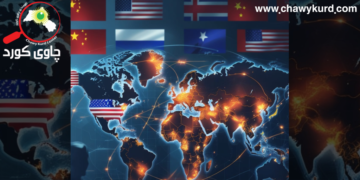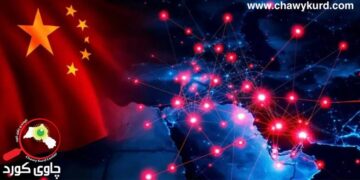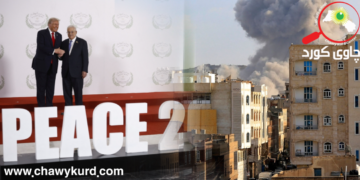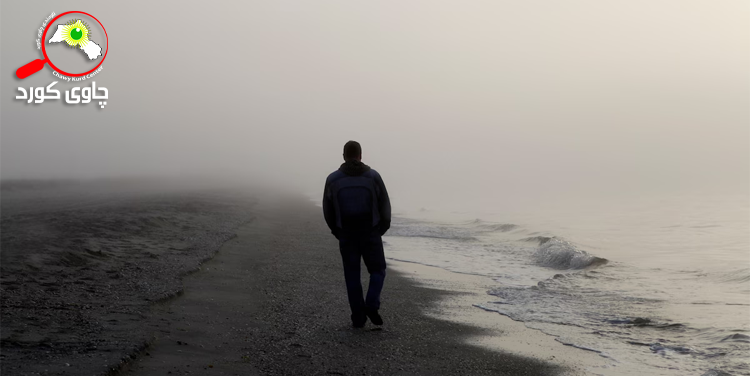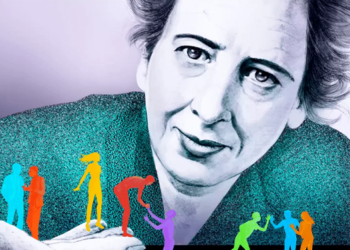‘Please write regularly or otherwise I am going to die out here.’ Hannah Arendt didn’t usually begin letters to her husband this way, but in the spring of 1955 she found herself alone in a ‘wilderness’. After the publication of The Origins of Totalitarianism, she was invited to be a visiting lecturer at the University of California, Berkeley. She didn’t like the intellectual atmosphere. Her colleagues lacked a sense of humour, and the cloud of McCarthyism hung over social life. She was told there would be 30 students in her undergraduate classes: there were 120, in each. She hated being on stage lecturing every day: ‘I simply can’t be exposed to the public five times a week – in other words, never get out of the public eye. I feel as if I have to go around looking for myself.’ The one oasis she found was in a dockworker-turned-philosopher from San Francisco, Eric Hoffer – but she wasn’t sure about him either: she told her friend Karl Jaspers that Hoffer was ‘the best thing this country has to offer’; she told her husband Heinrich Blücher that Hoffer was ‘very charming, but not bright’.
Arendt was no stranger to bouts of loneliness. From an early age, she had a keen sense that she was different, an outsider, a pariah, and often preferred to be on her own. Her father died of syphilis when she was seven; she faked all manner of illnesses to avoid going to school as a child so she could stay at home; her first husband left her in Berlin after the burning of the Reichstag; she was stateless for nearly 20 years. But, as Arendt knew, loneliness is a part of the human condition. Everybody feels lonely from time to time.
Writing on loneliness often falls into one of two camps: the overindulgent memoir, or the rational medicalisation that treats loneliness as something to be cured. Both approaches leave the reader a bit cold. One wallows in loneliness, while the other tries to do away with it altogether. And this is in part because loneliness is so difficult to communicate. As soon as we begin to talk about loneliness, we transform one of the most deeply felt human experiences into an object of contemplation, and a subject of reason. Language fails to capture loneliness because loneliness is a universal term that applies to a particular experience. Everybody experiences loneliness, but they experience it differently.
s a word, ‘loneliness’ is relatively new to the English language. One of the first uses was in William Shakespeare’s tragedy Hamlet, which was written around 1600. Polonius beseeches Ophelia: ‘Read on this book, that show of such an exercise may colour your loneliness.’ (He is counselling her to read from a prayer book, so no one will be suspicious of her being alone – here the connotation is of not being with others rather than any feeling of wishing that she was.)
Throughout the 16th century, loneliness was often evoked in sermons to frighten churchgoers from sin – people were asked to imagine themselves in lonely places such as hell or the grave. But well into the 17th century, the word was still rarely used. In 1674, the English naturalist John Ray included ‘loneliness’ in a list of infrequently used words, and defined it as a term to describe places and people ‘far from neighbours’. A century later, the word hadn’t changed much. In Samuel Johnson’s A Dictionary of the English Language (1755), he described the adjective ‘lonely’ solely in terms of the state of being alone (the ‘lonely fox’), or a deserted place (‘lonely rocks’) – much as Shakespeare used the term in the example from Hamlet above.
Until the 19th century, loneliness referred to an action – crossing a threshold, or journeying to a place outside a city – and had less to do with feeling. Descriptions of loneliness and abandonment were used to rouse the terror of nonexistence within men, to get them to imagine absolute isolation, cut off from the world and God’s love. And in a certain way, this makes sense. The first negative word spoken by God about his creation in the Bible comes in Genesis after he made Adam: ‘And the Lord God said, “It is not good that man is alone; I shall make him a helpmate opposite him.”’
In the 19th century, amid modernity, loneliness lost its connection with religion and began to be associated with secular feelings of alienation. The use of the term began to increase sharply after 1800 with the arrival of the Industrial Revolution, and continued to climb until the 1990s until it levelled off, rising again during the first decades of the 21st century. Loneliness took up character and cause in Herman Melville’s ‘Bartleby, the Scrivener: A Story of Wall Street’ (1853), the realist paintings of Edward Hopper, and T S Eliot’s poem The Waste Land (1922). It was engrained in the social and political landscape, romanticised, poeticised, lamented.
But in the middle of the 20th century, Arendt approached loneliness differently. For her, it was both something that could be done and something that was experienced. In the 1950s, as she was trying to write a book about Karl Marx at the height of McCarthyism, she came to think about loneliness in relationship to ideology and terror. Arendt thought the experience of loneliness itself had changed under conditions of totalitarianism:
What prepares men for totalitarian domination in the non-totalitarian world is the fact that loneliness, once a borderline experience usually suffered in certain marginal social conditions like old age, has become an everyday experience of the ever-growing masses of our century.
Totalitarianism in power found a way to crystallise the occasional experience of loneliness into a permanent state of being. Through the use of isolation and terror, totalitarian regimes created the conditions for loneliness, and then appealed to people’s loneliness with ideological propaganda.
Before Arendt left to teach at Berkeley, she’d published an essay on ‘Ideology and Terror’ (1953) dealing with isolation, loneliness and solitude in a Festschrift for Jaspers’s 70th birthday. This essay, alongside her book The Origins of Totalitarianism, became the foundation for her oversubscribed course at Berkeley, ‘Totalitarianism’. The class was divided into four parts: the decay of political institutions, the growth of the masses, imperialism, and the emergence of political parties as interest-group ideologies. In her opening lecture, she framed the course by reflecting on how the relationship between political theory and politics has become doubtful in the modern age. She argued that there was an increasing, general willingness to do away with theory in favour of mere opinions and ideologies. ‘Many,’ she said, ‘think they can dispense with theory altogether, which of course only means that they want their own theory, underlying their own statements, to be accepted as gospel truth.’
Arendt was referring to the way in which ‘ideology’ had been used as a desire to divorce thinking from action – ‘ideology’ comes from the French idéologie, and was first used during the French Revolution, but didn’t become popularised until the publication of Marx and Friedrich Engels’s The German Ideology (written in 1846) and later Karl Mannheim’s Ideology and Utopia (1929), which she reviewed for Die Gesellschaft in 1930.
In 1958, a revised version of ‘Ideology and Terror’ was added as a new conclusion to the second edition of The Origins of Totalitarianism.
Origins is a 600-page work divided into three sections on antisemitism, imperialism and totalitarianism. As Arendt worked on it, the text changed over time, to incorporate new information about Hitler and Stalin as it emerged from Europe. The initial conclusion, published in 1951, reflected on the fact that, even if totalitarian regimes disappeared from the world, the elements of totalitarianism would remain. ‘Totalitarian solutions,’ she wrote, ‘may well survive the fall of totalitarian regimes in the form of strong temptations which will come up whenever it seems impossible to alleviate political, social, or economic misery in a manner worthy of man.’ When Arendt added ‘Ideology and Terror’ to Origins in 1958, the tenor of the work changed. The elements of totalitarianism were numerous, but in loneliness she found the essence of totalitarian government, and the common ground of terror.
Why loneliness is not obvious.
Arendt’s answer was: because loneliness radically cuts people off from human connection. She defined loneliness as a kind of wilderness where a person feels deserted by all worldliness and human companionship, even when surrounded by others. The word she used in her mother tongue for loneliness was Verlassenheit – a state of being abandoned, or abandon-ness. Loneliness, she argued, is ‘among the most radical and desperate experiences of man’, because in loneliness we are unable to realise our full capacity for action as human beings. When we experience loneliness, we lose the ability to experience anything else; and, in loneliness, we are unable to make new beginnings.
Totalitarianism destroys man’s ability to think, while turning each in his lonely isolation against all others
In order to illustrate why loneliness is the essence of totalitarianism and the common ground of terror, Arendt distinguished isolation from loneliness, and loneliness from solitude. Isolation, she argued, is sometimes necessary for creative activity. Even the mere reading of a book, she says requires some degree of isolation. One must intentionally turn away from the world to make space for the experience of solitude but, once alone, one is always able to turn back:
Isolation and loneliness are not the same. I can be isolated – that is in a situation in which I cannot act, because there is nobody who will act with me – without being lonely; and I can be lonely – that is in a situation in which I as a person feel myself deserted by all human companionship – without being isolated.
Totalitarianism uses isolation to deprive people of human companionship, making action in the world impossible, while destroying the space of solitude. The iron-band of totalitarianism, as Arendt calls it, destroys man’s ability to move, to act, and to think, while turning each individual in his lonely isolation against all others, and himself. The world becomes a wilderness, where neither experience nor thinking are possible.
Totalitarian movements use ideology to isolate individuals. Isolate means ‘to cause a person to be or remain alone or apart from others’. Arendt spends the first part of ‘Ideology and Terror’ breaking down the ‘recipes of ideologies’ into their basic ingredients to show how this is done:
- ideologies are divorced from the world of lived experience, and foreclose the possibility of new experience;
- ideologies are concerned with controlling and predicting the tide of history;
- ideologies do not explain what is, they explain what becomes;
- ideologies rely on logical procedures in thinking that are divorced from reality;
- ideological thinking insists upon a ‘truer reality’, that is concealed behind the world of perceptible things.
The way we think about the world affects the relationships we have with others and ourselves. By injecting a secret meaning into every event and experience, ideological movements are forced to change reality in accordance with their claims once they come to power. And this means that one can no longer trust the reality of one’s own lived experiences in the world. Instead, one is taught to distrust oneself and others, and to always rely upon the ideology of the movement, which must be right.
But in order to make individuals susceptible to ideology, you must first ruin their relationship to themselves and others by making them sceptical and cynical, so that they can no longer rely upon their own judgment:
Just as terror, even in its pre-total, merely tyrannical form ruins all relationships between men, so the self-compulsion of ideological thinking ruins all relationship with reality. The preparation has succeeded when people have lost contact with their fellow men as well as the reality around them; for together with these contacts, men lose the capacity of both experience and thought. The ideal subject of totalitarian rule is not the convinced Nazi or the convinced Communist, but people for whom the distinction between fact and fiction (ie, the reality of experience) and the distinction between true and false (ie, the standards of thought) no longer exist.
Organised loneliness, bred from ideology, leads to tyrannical thought, and destroys a person’s ability to distinguish between fact and fiction – to make judgments. In loneliness, one is unable to carry on a conversation with oneself, because one’s ability to think is compromised. Ideological thinking turns us away from the world of lived experience, starves the imagination, denies plurality, and destroys the space between men that allows them to relate to one another in meaningful ways. And once ideological thinking has taken root, experience and reality no longer bear upon thinking. Instead, experience conforms to ideology in thinking. Which is why when Arendt talks about loneliness, she is not just talking about the affective experience of loneliness: she is talking about a way of thinking. Loneliness arises when thought is divorced from reality, when the common world has been replaced by the tyranny of coercive logical demands.
We think from experience, and when we no longer have new experiences in the world to think from, we lose the standards of thought that guide us in thinking about the world. And when one submits to the self-compulsion of ideological thinking, one surrenders one’s inner freedom to think. It is this submission to the force of logical deduction that ‘prepares each individual in his lonely isolation against all others’ for tyranny. Free movement in thinking is replaced by the propulsive, singular current of ideological thought.
In one of her thinking journals, Arendt asks: ‘Gibt es ein Denken das nicht Tyrannisches ist?’ (Is there a way of thinking that is not tyrannical?) She follows the question with the statement that the point is to resist being swept up in the tide at all. What allows men to be carried away? Arendt argues that the underlying fear that attracts one to ideology is the fear of self-contradiction. This fear of self-contradiction is why thinking itself is dangerous – because thinking has the power to uproot all of our beliefs and opinions about the world. Thinking can unsettle our faith, our beliefs, our sense of self-knowledge. Thinking can strip away everything that we hold dear, rely upon, take for granted day-to-day. Thinking has the power to make us come undone.
But life is messy. Amid the chaos and uncertainty of human existence, we need a sense of place and meaning. We need roots. And ideologies, like the Sirens in Homer’s Odyssey, appeal to us. But those who succumb to the siren song of ideological thinking, must turn away from the world of lived experience. In doing so, they can’t confront themselves in thinking because, if they do, they risk undermining the ideological beliefs that have given them a sense of purpose and place. Put very simply: people who subscribe to ideology have thoughts, but they are incapable of thinking for themselves. And it is this inability to think, to keep one’s self company, to make meaning from one’s experiences in the world, that makes them lonely.
She was unable to find the private, self-reflective space necessary for thinking
Arendt’s argument about loneliness and totalitarianism is not an easy one to swallow, because it implies a kind of ordinariness about totalitarian tendencies that appeal to loneliness: if you are not satisfied with reality, if you forsake the good and always demand something better, if you are unwilling to come face-to-face with the world as it is, then you will be susceptible to ideological thought. You will be susceptible to organised loneliness.
When Arendt wrote to her husband: ‘I simply can’t be exposed to the public five times a week – in other words, never get out of the public eye. I feel as if I have to go around looking for myself,’ she wasn’t vainly complaining about the limelight. The constant exposure to a public audience made it impossible for her to keep company with herself. She was unable to find the private, self-reflective space necessary for thinking. She was unable to people her solitude.
This is one of the paradoxes of loneliness. Solitude requires being alone whereas loneliness is felt most sharply in the company of others. Just as much as we rely upon the public world of appearances for recognition, we need the private realm of solitude to be alone with ourselves and think. And this is what Arendt was stripped of when she lost the space to be alone with herself. ‘What makes loneliness so unbearable,’ she said ‘is the loss of one’s own self which can be realised in solitude …’
In solitude, one is able to keep oneself company, to engage in a conversation with oneself. In solitude, one doesn’t lose contact with the world, because the world of experience is ever-present in our thinking. To quote Arendt, quoting Cicero: ‘Never is a man more active than when he does nothing, never is he less alone than when he is by himself.’ This is what ideological thinking and tyrannical thinking destroy – our ability to think with and for ourselves. This is the root of organised loneliness.
cited: https://aeon.co/essays/for-hannah-arendt-totalitarianism-is-rooted-in-loneliness










